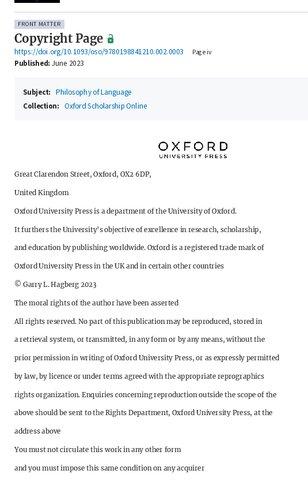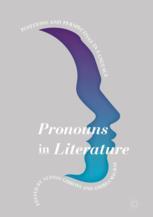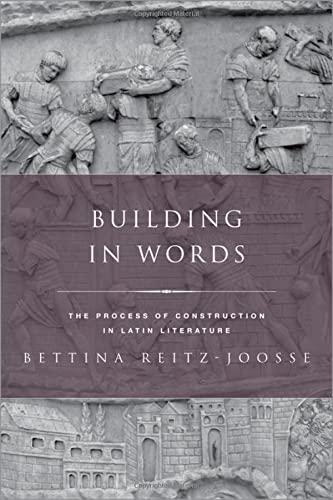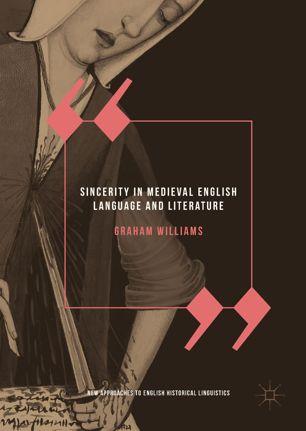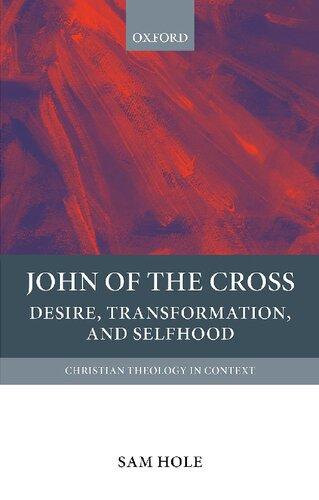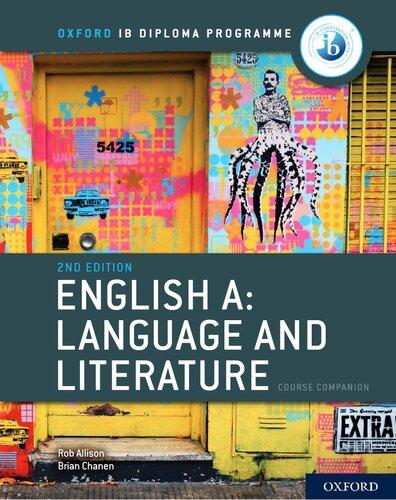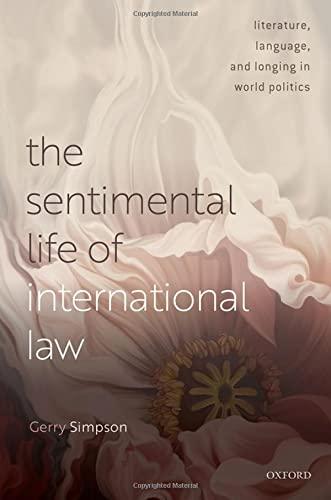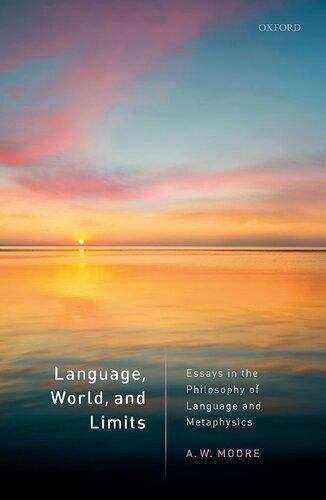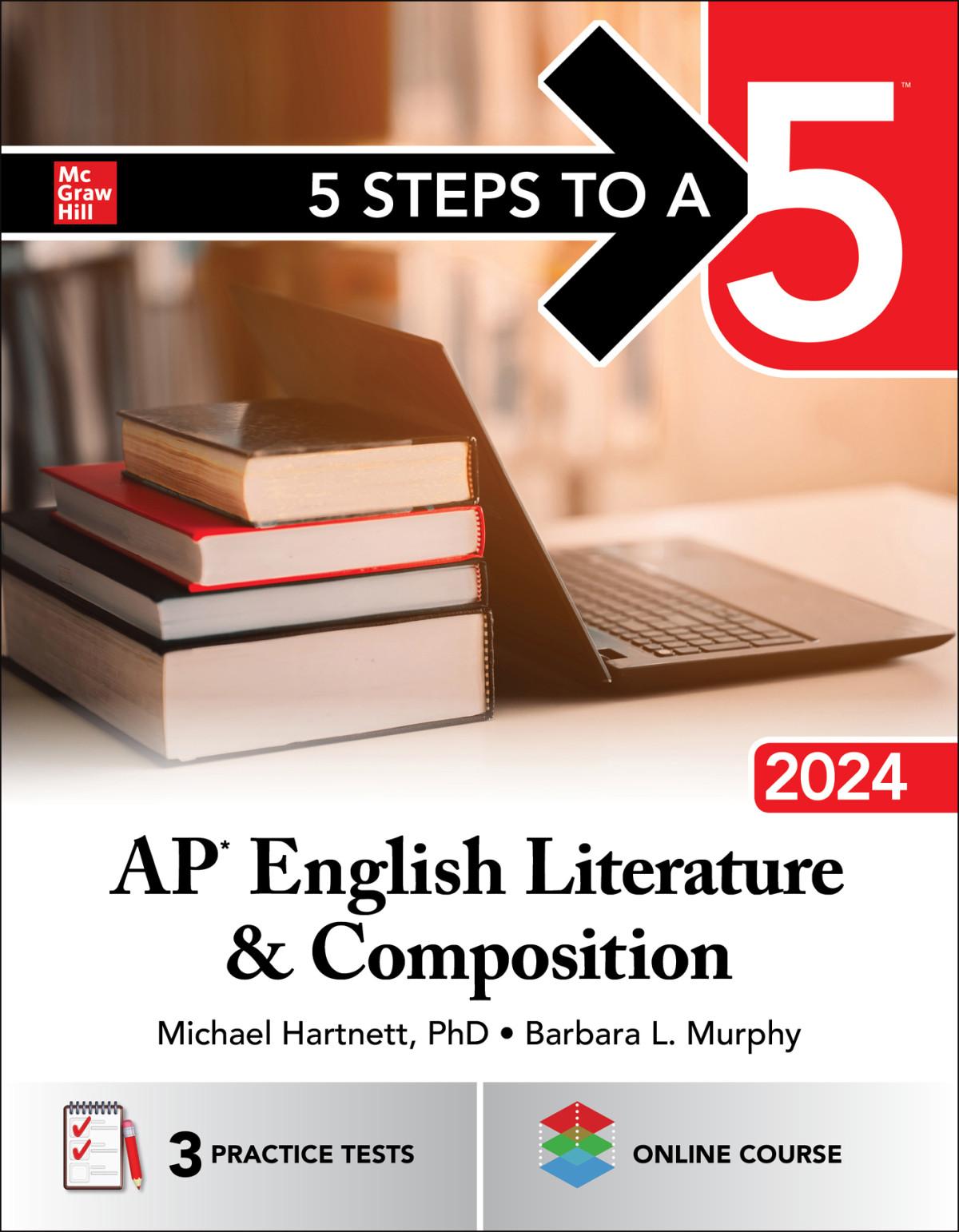Preface:OntheSelf-Formative PowerofLiterature
Everyoneatbottomreallyknows(oratleastsoIimagine)thatwhoweareas personsisinpartdeterminedbytheliterary-aestheticexperiencewehaveandthe reflectiveliveswecultivateasaresultofthoseexperiences ourvaluingofthe narrativeartsandaestheticexperienceaswedoisbasedonthatfact.Thisbookis anattempttoarticulateanumberofthesensesinwhichthisclaimconcerning self-constitutionistrue,andtheconditionswithinwhichitcanbetrue.Thistask, atleastasIundertakeithere,involvestheinterweavingofphilosophersasdiverse asWittgenstein,Aristotle,Rousseau,StanleyCavell,theAmericanpragmatists (C.S.Peirce,WilliamJames,JosiahRoyce,andGeorgeHerbertMead),Donald Davidson,RichardRorty,ArthurDanto,MichaelKrausz,andRaimondGaita, amongothers,co-mingledwithaperhapsunpredictablecohortofwritersincludingVirgil,VirginiaWoolf,HenryJames,Mozart’slibrettistdaPonte,Goethe, Shakespeare,Dostoevsky,T.S.Eliot,Borges,IrisMurdoch,andMilanKundera.The figureinthiscarpetisaconceptionofreading adistinctivekindofdeeply absorbedandself-examiningliteraryengagement thatisactivetothepointof self-making;itis,Isuggest,amodeofaestheticexperiencethat,initswayontologicallyempowered,bringsintoexistenceandstabilizessomething specifically, importantelementsofthecontentofourcharacter,toborrowaphrase that previouslydidnotexist.Thisisaphenomenonthatbecomesexplicablethrough theconjoiningofarelationalconceptionofselfhoodtoanarrativeconceptionof self-understanding,anditisaprocessthatisbothdepictedinliterarycharacter developmentand moreimportantlytothisdiscussion enactedwithinthereader throughadoubledprocessinvolving(1)avicariousidentificationwiththose developingcharactersand(2)aparallelactofdefinitionallystrongself-reflection. Butthenitisnotmerelyaset, fixed,orinvariantprocess,onepriortoandseparable fromitsproduct,thatyieldsatitsconclusionapredictableand fixedresult.Rather,it isaprogressiveorsteadilyevolvingformof(non-pejorativelyunderstood) “bootstrapping” intoanevermoreexactinglydefinedself-identity.
IwillsaymoreaboutthegroundIattempttocoverinthisbookinamoment,but tobrieflyenumeratethefundamentalaspirationsofthisundertaking,Ihopeherein:
(1) Toofferareadingoftheconceptionofhumanselfhooddevelopedin Americanpragmatismthatseemsparticularlywellsuitedtobringtoprominence, andtoplaceinperhapsanewlight,thepowerfulroleaesthetic(andparticularly literary)experienceplaysinself-formation.
(2) Tobringtheprecedingintocontactwithquestionsandanswersconcerning thedistinctivewaysinwhichhumanselvesare(andagainsttoo-facilepresuppositionsconcerningautonomy,arenot)bounded,relatingthistoadiscussionof thewaysinwhichhumanexperienceis,andinstructively(again,againsttoo-facile empiricistpresuppositions)isnot,bounded.
(3) Tolookintothedeepanalogiesbetweentheworkofadraughtsmanwho rendersalltherelationsbetweenthepartsofabuildingperspicuouslyandthe autobiographerwhodoesverymuchthesameinachievingself-understanding, thenprogressingtoanintertwineddiscussionoftheliterarystructuringdeviceswe use(ofabroadlyAristoteliankind)as “self-architects” inthisprocess.
(4) Toexaminesomecases,Ithinkpowerfullyinstructivewithregardbothto allthethemessofarinplayandinregardtothethemestofollow,ofthekindsof humantragedythatensuefrominsufficientself-knowledge(first,ofakind resultingfromawalled-indenialofbothselfandotheracknowledgment Don Giovanni;second,ofakindresultingfromanencompassingmindfulnessofthe structureandcontentofone’slifetoolongdelayed HenryJames’scharacter Dencombe;andthird,ofakindresultingfromapresuppositionthatlanguageis justaninstrumentforthenamingandbluntdescriptionofexternalities King Lear).Toseehowthesethreecasesbringoutinhighreliefwhataselfdraughtsman(orasIwillsaylater,self-composeronamusicalanalogy)can sometimestragicallyandalwaysregrettablyeitherobscure,minimize,orleaveout entirely,showsthreefoundationalelementsthatarenecessaryforthesenseof selfhoodthatIdiscussinChapters5and6.
(5) Toarticulate,inthelightofallthepreceding,aconceptionofreading (andrereading),ofliteraryengagement(orbyextension,engagementwithany psychologicallymimeticnarrative),thatexhibitsitsowncomplexarchitecture, wheresuchreading(“doublereading,” asIcallithere)uncovers(a)theoften underappreciatedrolebelief-acquisitionplaysinidentity-construction,(b)the self-constitutiveauthorityexertedwithintheactofmakingresolutedecisions concerningwhatwewoulddoif ...,and(c)therefiningofself-individuation thatensuesfromanattentivemetaphorical(IwillexplainthisinChapter5) identificationwithaself-definingprotagonist.
(6) Toalsoreconsidermetaphorinlightofproblemsofconstitutive self-description,therelationbetweenself-reinventionandself-redescription(and theproblemofhowtobetterunderstandthesensesinwhichself-redescriptionis, andisnot,acreativeact),andtheimaginativeprocessofparallelreadingin connectionwithabroadlyphilosophicalconceptionoftheexaminedlife.
(7) Toofferanestedsetofsuggestionsabouttheself-constitutiveaspectsofthe reader’sinnerworld(thisisdangerouslyput andinterestinglyso,forreasonswe willsee:inshort,itisinnerbutnotautonomousorhermeticallysealed)thatmight augmenttheextensivediscussionsofrecentdecadesaboutthepoliticsofidentity withadiscussionofwhatonemightthencalltheaestheticsofidentity.Orperhaps
better(becausetheformerwayofputtingitcansuggestthatitisexternalforceson self-creationthatareprimarilyinplay),toaugmentdiscussionsofethicalselffashioningwithwhatwemightnowcallaestheticself-fashioning,wherethisin turnarticulatesinextendedformwhatwecanmeanby “sensibility,” awordstill toolittleexaminedininvestigationsintoboththenatureandcontentofselfhood.
(8) Tolookathowthatpersonalandself-de finingsensibilityisdevelopedand displayedinautobiographicalwriting,andtomorefullyarticulatewhatwemean by “thesenseofself ” particularlyinconnectionwithever-evolvinglong-form narrative.
(9) Tohelpdiagnose,disentangle,understandthesourcesof,andultimately quiettheintellectualimpulsesthatwouldleadussoquicklyandsodeeplyintothe misbegottenpicture(itselfindeedaself-portraitinaconvexphilosophy)of autobiographicallanguageasanafterthoughtormerereflectorratherthanasa shaperandmakerofwhoandwhatweare.
Butbecause inbooksasinlife itisbettertoknowhoweachpart fitsintoa largerwhole,amoredetailedmapviewedinadvancemayprovehelpful.Soin finerresolution:Chapter1setsthestagefortheentireprojectbyconsideringthat, ofaratherextendedfamilyofwaysweengagewithliteraryworks,onein particularconstitutesanoccasionforself-re flectionofaverydistinctivekind. Thatdistinctivemodeofliteraryengagementis,asIwillsuggest,supportedbythe relationalconceptionofselfhood onethatacknowledgesconnectionsasmuchas thethingsconnected asinitiallydevelopedinAmericanpragmaticthought.And wherethatrelationalconceptionisviewedagainsttheculturallyembedded Cartesianormind-bodydualisticpictureoftheself(wheretheselfisviewed mostfundamentallyasanontologicallysealedconsciousnessonlycontingently relatedtowhatwethencalloutwardthings),itallowsustoseeinhigherreliefthe wayinwhichthedetailedandoftenquitenuancedcomparisonswemakebetween ourselvesandliterarycharactersyieldhighlyparticularizedformsofselfknowledge.Andmorestrongly andthisisthefundamentalpointforallthatis tofollowhere therelationalconceptionofexperiencederivedfrompragmatism allowsusalsotoseewithgreaterclarityhowautobiographicalorreflexively engagedliteraryexperienceitselfbecomesself-constitutive,howitbecomesthe materialoutofwhichwecompose,inpart,ourselves.Ourself-negotiatedidentitiesarebothsharpenedby,andindeedinpartconstitutedby,seriousliterary engagement.(This,incidentally,ismost fittingforthephilosophyofacountry whosedeeperculturalethosremainscentrallyconcerned,fromitsfoundingupto thepresent,withthepossibilitiesofself-creation,self-renewal,andselfreinvention.)If we areinpartcomposedofrelationsofthekindWilliamJames, JosiahRoyce,andGeorgeHerbertMeademphasized,thentheselvesthatenter imaginary fictionalworlds,insofarastheyarerelationallyrecon figured,donot remainunchangedbythoseworlds.WilliamJameswrote, “Nooneeverhada
simplesensationbyitself.Consciousness,fromournatalday,isateeming multiplicityofobjectsandrelations,” andifourconsciousness,ourself-awareness, isinpartgivencontentbyaestheticexperience,thenourrelationstoartworksand worksofliteratureare,intermsbothofself-formationandautobiographical understanding,nosmallmatter.Andifsuchaclaimconcerningtheselfconstitutivepowerofaestheticexperienceseemsexcessive,thatIbelieveisonly becauseourpresentpatternsofattentionmoregenerally,andourepistemological hierarchiesmorespecifically,donotgiveparticularaestheticexperiences,and indeedtheentireaestheticdimensionoflife,theirdue.
InthelastsectionofChapter1,Iextendthediscussionfromarelational conceptionofapersontoarelationalconceptionoflanguage.Wewillhaveseen that,accordingtothetraditionalCartesianconceptionofselfhood,thehuman self,asarepositoryofinwardlyknowablecontent,existspriortoandseparable fromanycontext,situation,orrelationintowhichitcontingentlyenters. Correspondingtothisviewistheconceptionoflinguisticmeaningasbeingwholly determinedbytheinwardmentalcontentofthespeakeralsoindependentofany externalrelations.Butwhataretheimplicationsforlanguageiftheclassical Americanpragmatistsandotherssincearerightaboutseeingtheselfascreated within,andconstitutedby,thewebsofrelationsintowhichitentersandwithin whichitactuallyacquiresitsidentityanditscontent?Isuggestherethatthereisa parallelwayoflookingatwords,andthattotrulyunderstandapersonisinpartto genuinelyunderstandthewebsofrelations,references,allusions,connotations, andcross-circumstanceresonancesthatgiveaperson’swordstheircontextsensitivemeaning.This,Isuggest,isclosetowhatWittgensteinreferredtoas “the fieldofaword,” whichforgoodreasonheinsistedisdecisiveindetermininga word’smeaning.Thustheunderstandingofapersonbiographicallyrequiresan understanding,withthisrelation-embeddedcomplexity,oftheirwords;andto understandourselvesautobiographicallyistoworkthroughanunderstandingof ourownwords,ourownwaysofseeingmeaning-determiningrelations.Iexamine theseideasinexamplesdrawnfromMilanKundera,IrisMurdoch,andRousseau, suggestingthatwhatisatissuehereintermsofhumanunderstandingistruein lifejustasitisinliterature.
Buttheaestheticallyfueledprocessofbecomingwhowearebringsquicklyinits waketheissueofknowingwhatweare.Ireturntothismorefullyinconnection withthecautionarytaleofDonGiovanniinChapter4andtheinstructivecaseof Virgil’sAeneasinChapter5.ButatthisearlystageinChapter2,Ilaythe groundworkforthatpartofthelaterdiscussionbylookingintowhatis and whatisnot entailedbyourabilitytodistinguishrightfromwronginterpretation (asaphilosophicalmodelforrightorwrongself-interpretation),looking firstat theclarifyinganalysisMichaelKrauszbringstothisissue.Hereweseethatthe ontologicalcommitmentsmanyhaveperceivedinthepositionsofinterpretative singularismandmultiplismarenotgiven,notnecessary.Forexample,starting
withtheoptionofsingularism,wemightquickly tooquickly,asKrauszshows assumethat fixed-propertyrealismisnecessitated.Thatis,inorderfortheretobe oneuniquelycorrectinterpretation,theobjectinterpreted inourcaseahuman self musthavea finitesetofdeterminateproperties,sothattheinterpretationis correctinvirtueofrightlydescribingoridentifyingjustandonlythoseproperties. Thiswouldimplythattheselfiscomposedofa finitesetofdeterminate,ifnot properties,strictlyspeaking,thenboundedexperiencesorboundedmentalevents, e.g.,intentions,motivations,andsoforth.Bycontrast,multiplism,wemight similarlythink,impliesavariableornon- fixedontology.Butinthe firstsection ofthischapterweseethatsuchontologicalpicturesarenotnecessitatedbyeither ofthetwointerpretivepositions(oncewehavetheAmericanconceptionof selfhoodinfocusagainsttheentrenchedCartesianview),andthediscussion proceedstoafullerconsiderationofthemanydiversethingscoveredbythe genericterm “interpretation.” Andwealsosee(hereintroducingathemeweaving throughtheentirebook,i.e.,thedeepanalogiesbetweenartworksandhuman selves)thatmanyartworks,suchasChristo’ s WrappedReichstag,exhibita boundary-indeterminacythatdoesnotendorseasubjectivizedorrecklessrelativism,butitdoesendorseapragmaticcontextualism.Thatis,itiswithin,andonly within,particularcontextsthatwewillknowhowandwheretodrawboundary linesaroundartworks.Humanselves,itemerges,exhibitsimilar fluidityor cautiouslyspeaking indeterminacy.Sotheinterpretation,theunderstanding,we haveofourselveswillnotbeamatterofsimplecorrespondencetopreverbal fixities.Autobiographicallanguageisnotamerematterofinwardreportage.
Inthesecondsectionofthissecondchapterwemovetoareconsiderationof whatItaketobeWittgenstein’shelpfulanalysisofunderstanding,but advancing thediscussiononemorestep whereweseesuchunderstandingmanifestedin actionaswellasinspeech.Herethecharacterizationoftheknowledgedisplayed, theunderstandingthatisshownandnotonlysaid,becomesafairlydelicate matter,preciselybecausetheveryideaofa manifestation ofunderstandingin actionseemstorevivifytheverydualismtowhichthepragmaticconceptionis mostfundamentallyopposed:itseemstorequireustosaythatweshowoutwardly whatwe firstknowinwardly.Andthisthenlinksinclear(butperhapsheretoforetoo-littleexamined)waystoself-understandingandtothewaysinwhichweshow thatunderstandinginactionandsayit,orwriteit,inlanguage.Indeed, Wittgenstein’sremarks,readinthislight,showthatwecanbeimpelledtotryto getholdof the mentalprocessofunderstanding,wherethisprocessappearsat first glancetobemetaphysicallyhidden.Itisashortstepfromthere indeedifitisa stepawayatall toaninterestinglymisleadingandalsodeeplyembeddedpicture ofcorrectautobiographicalself-understanding:wewouldunderstandourselves rightlyexactlytotheextentthatwelocateandidentifythehiddenmentalprocess containedwithinthe “inner” andthenportrayedinthe “outer,” i.e.,autobiographicalwriting.Butasweseeinphilosophyandespeciallyinliterature,theactual
criteriaweemployincontextsofself-investigation,whiletheydoallowsucha thingasinterpretiverightness,instructivelydonotconformtothisentrenched conceptualmold.
InthethirdsectionofthischapterweturntowritingsofDonaldDavidson’ s thatareparticularlypertinenttotheseissues,namelyhiswritingsconcerningthe problemoftheboundednessofhumanexperience(whereheisdeveloping, extending,andrefiningsomeofthepragmaticthemeswesawinChapter1). BothnarrowingandsharpeningtheissuewithDavidson,weseethatifthecontent ofexperiencecannotbeaccuratelycapturedbyanydescriptionthatfailsto acknowledgetheinterpenetrationofone(allegedlydeterminate)experienceby another,ifwefailtoacknowledgewhatNabokov,aswewillseehere,calledthe “ resonances ” betweenthem,thenanyattempt(1)toatomisticallyisolateasingle humanactionorexperienceandthen(2)torightlycapturethatinanautobiographicaldescriptionwouldbetosimultaneouslymischaracterizeboththenature ofrightnessorcorrectnessinself-descriptionandthecontentofhumanexperienceitself.Ifmentalcontentis constituted holistically(andasWilliamJames argued,relationally),thenwecouldnotgetsofarastograspwhichexperienceitis weareattemptingtocaptureinacorrectdescription inautobiographicalorselfdescriptivewritingorinspeech withoutafullgraspofthecontext,thesensibility,thelivedlifewithinwhichthatexperiencewillhaveitsNabokovianresonances.Thentobroadenthediscussionbackout,theseobservations,properly understood(anunderstandingthatbringingphilosophyandliteraturetogether inthiswayencourages),holdratherdeepsigni fi canceforourunderstandingnot onlyofwhatkindofidentity-formingprocessanengagedreaderundergoes,but alsoofwhatkindoftaskonewhosetsouttounderstandalife,i.e.,abiographer orautobiographer,asadescriberofselfhood,undertakes.Indeed,weseeherein thecaseofVirginiaWoolfwritingamem oirofherearliestexperiences,the necessityofrelationalconnectednessandcontext-sensitivityingettingsofar aseveninitiallyidentifyingandgenericallydescribingthatexperience.She wantstowriteofexperience,asshesays, “asitshouldbewritten”— bywhich shemeanscapturinginlanguagethegrainyparticularitythatmakesanexperiencewhatitis,andwritingofitinawaythatdoesnotmakewhatsheregardsas thecardinalmistakeofbiographical orautobiographicalwriting,i.e., “leaving outthepersontowhomthingshappened,” orfailingtocapturethesensibilityof theindividualinquestion.(Iwillarguelater,inChapters5and6,thatsuch sensibilitycanbeunderstoodinlargepartasone’spresentcomplexnetworkof relationstoone’sownpast.)Thephilosophicallyentrenchedidea(whichisthe mostdeeplyseatedpartofthedistortinglegacyofeighteenth-centuryempiricism) ofhermeticoratomisticboundednessofhumanactions,ofexperiences,and ofselves,is,itemergeshere,apicture-drivenmyththatwantsreplacingbya farmoreparticularized,individualistic,oftenmessierbutinvariablyfarmore interesting,senseofreal,i.e.,context-sensitiveandsensibility-sensitive,experience.
(Toover-encapsulate:muchoftherestofthisbooktriestodescribethatmore complicatedsenseofhumanexperience.)
Focusingontheactiveprocessofnarrativestructuringasitprovidesthe architectureofself-understanding,Chapter3inthe firstsectionlooksintothe distinctivekindofconnection-findingworkaself-narratorundertakes. Wittgensteinnotesthedeepsimilarityinlaborthatunitesthethinkerandthe draughtsman;thedraughtsmanstrivesto “representalltheinterrelationsbetween things,” andthethinker thephilosopher canbeseentopursuestrikingly similarends.(Indeedoneimportantlineofphilosophicalworkinthemidtwentiethcenturywascalled “connectiveanalysis. ”)Andgivenwhatwewill haveseenbythispointconcerningtherelationalembeddednessandtheconstellationofawakenedassociationsthatservetomakerememberedandretrospectivelydescribedexperienceswhattheyare(asexaminedinChapters1and2), thetaskof firstclarifyingandthenstructurallysituatingsuchrelationsnow emergesascentrallysignificanttoanyautobiographicalundertaking precisely becauseweusesuchclarifiedrelationstobuildastructureofself-understanding. (Wittgensteinalsonoted,asweshallsee,that “Workinginphilosophy likework inarchitectureinmanyrespects isreallymoreaworkingononeself.Onone’ s wayofseeingthings.”)Herecloseandilluminatingsimilaritiesemerge(a)between thewaythatfollowingoutaninterpretationofaworkofartormusicbrings thematicstrandsoutinhigherreliefandthus,inanimportantsense,makesthat workwhatitiswithinthatinterpretiveframe,¹and(b)thewayinwhichfollowing outaninterpretationofalifeanditsstructuredoesmuchthesamething,i.e.,it determines,inWittgenstein’ssense,ourwayofseeingthingswithinthatevolving life-narrative.It makessense ofalife,anditthusconstitutesthecontentof self-understanding ofakindveryunlikemodel-drivencausalexplanationin the(so-called)socialsciences.²Andweseeherehowsuchretrospective connection-clari ficationservestoprovidewhatWittgensteincalleda “perspicuous overview”—butherenotofaphilosophicalproblem-fieldbutratheroftheself ’ s pastorone’sownintellectualgenealogy.Butthenwhattoolsdowehaveatour disposalforthestructuringofalife’snarrativeoncetheconnections,as structuralelements,aremadeoridentified³andclarified?Andwhatisa structurally clarifiedpast,anddoesthestructurewithinwhichweseealifereveal,or
¹The locusclassicus inmodernaestheticsforthispoint(concerningourdependencyonthe interpretiveframe)isKendallWalton, “CategoriesofArt,” ThePhilosophicalReview,79(3),July, 1970:334–67.
²Theskepticismintimatedherebythewords “so-called” derivesfromPeterWinch, TheIdeaofa SocialScience (London:Routledge,1958),andRupertRead,PhilHutchinson,andWesSharrock, There IsNoSuchThingasaSocialScience:InDefenceofPeterWinch (London:Routledge,2008).
³Thedistinctionbetween “made” and “identified,” orcreatedversusdiscovered,connectionsofthe self-descriptivekindisnotassimpleadistinctionasitmayat firstglanceseem;Iofferadiscussionof thisin DescribingOurselves:WittgensteinandAutobiographicalConsciousness (Oxford:Clarendon Press,2008),ch.5,sec.2: “ThePainandthePiano,” pp.163–75.
impose,sense-makinginterconnections(oristhe “revealed-versus-imposed” dichotomytoostarktocapturetheintricatetruthofthematter)?Thesequestions (althoughtheyintroduceandpointtowardissuestobecoveredinChapter5) occasionacloseexamination,inthesecondsectionofthischapter,toAristotle’ s exemplarytreatmentofthenarrativeelementsindramathatyieldteleological evolution,thematicinterconnectedness,narrativepower,andthesenseofclosure. Heretheconceptionofselfhoodandtheconceptionofliteraryexperiencebeing developedinthisstudywillfullycometogether.
Aristotlemakesclearthatwedonotunderstandahumanactionwithout understandingitsteleology,thelargerframeofreferencewithinwhichithasits point,itspurpose,anditsintentionalcontentwithinanexpanded field.Andhe famouslyspeaksofthebeginning,themiddle,andtheendofaplot:abeginning setsthemesthatthemselvescarryteleologicalpotentialandthusestablishnarrativedrive(adrivethatbecomesinexorableinthestrongestcases),themiddleisa phaseinwhichthoseteleologiesanddevelopmentsbecomemanifestoractualized insuchawaythattheypointtosubsequentdevelopment(andwhereother possibledevelopmentssubmergeasunactualized),andtheendisthenarrative thread-tyingthatyieldsthesenseofclosureorthesense,asithasbeenputby FrankKermode,ofanending.Andinseeinganactionwithinsuchanexpanded frameweseethecausalantecedentsthatmadeitpossible,thatmadeitmakesense, andthatsituateditinawaythatgivesititsmeaning-specifyingcharacter,andwe seethethematicandcausallinkagesrunningto,through,andfromit.Aristotle observesthat,giventheseplot-definingelements, “itisrighttocontrastand comparetragedieslargelyintermsofplotstructure.” Tragedyor(asonehopes) not,thesamecanbesaidoflife-narratives butthenoneneedstosortoutthat life-narrative’sliteraryqualityfromitstruth,becauseofcourseagoodstoryisnot byvirtueofthatgoodnessatruestory.Andsothethirdsectionofthischapter goesintothequestionofthedifferencebetweentheclarificationandtheliterary cloudingofalife-story,whichleadstothedistinctionbetweentheproductive versustheunproductive(andthislinksbacktothepragmatismofChapter1) employmentofliteraryarchitecturaldevicesinthestructuring andimportantly restructuring ofalong-formnarrative.Thisinturnleadsustotheexamination ofthecomplex(andinsomecasesinterestinglyunobvious)rolethatmemory playsasacriterionfordeterminingtheverisimilitudeofonesetofnarrative connectionsoveranother.
AlloftheAristotelianelementsofplotconstructionthuscan whenemployed cautiouslyandjudiciouslyinwayswewillexplore providewaysofarticulating theinterconnectionsofalifethatconstituteitsinternalresonances,andmore deeply,itsstructure.Andsucharticulations,astheyorganicallyemergewithinthe autobiographicalsituation,can,asIalsosuggestinthe finalsectionofthischapter, proveinbothintellectualandemotionalsensescathartic.Buthereagain,theways inwhichthathappensarenotsimple,notreducibletoaneatformula.Thisisto
say:theAristotelianthemesarenotbroughtinhereasamatterof application,for thatwouldbetofalsifyalife-narrativebydramatizingitwithstructuringdevices priortoandseparablefromthatlife.Rather,rightlyunderstood andaswewill seeintheclosingpartsofthissection theyareintruthhoused within relationally interwovenexperiencetobeginwith(whichisnottosaythatwewillinitiallysee themorseethemclearly),andasweshallseethelanguage-gamesweevolveto describethecontentandthecoherenceofsuchexperiencereflectthatfact.
Butonedistinctiveaspectofself-interpretation,orself-referentialnarrative composition,hasnotyetbeenaddressed.Turningtodetailedexamples, Iexplorethisinthe firstsectionofChapter4byconsideringatextthatcanbe takenasa fineandclosestudyof(a)thisdistinctiveaspect’sabsence,(b)its presenceasthecommonbackgroundagainstwhichwecanseesuchabsencein starkrelief,and(c)itsfoundationalroleasapreconditionforself-reflectionofany kind(andthusitsroleininflectingthewordsweuseinourcomplexnetworksor language-gamesofself-description). DonGiovanni isanoperathathousesdeep insight andaninstructiveobjectlesson aboutwhatanumberofphilosophers havediscussedasthepreconditionofselfhood,ofwhatwecallinnerhuman content,thatmakesthedistinctiveandirreducibleattitudeorstancewetake towardotherpersonssomuchaspossible.Wittgensteincalledthis Eine EinstellungzurSeele,anattitudetowardsasoul.Indeed,theoperaservesto frameGiovanni,tocomparatively(asinChapter1)situatehiminrelationto theothercharacters,asaperson orratherasanentity lackingpreciselythe interiorcontentthatrendershumaneacknowledgmentpossibleandthatconstitutesthefundamentaldifferencebetweenourperceptionofahumanbeingand ourperceptionofanythingelse,animateorinanimate.Throughaclosereadingof thisphilosophicallysignificantlibretto,wecometoseethatthestatuescene constitutes,atonelevel,aconfrontationwiththefallenCommendatoreasthe possessoroftheinteriorlifeGiovannisowoefullylacks.Butatanotherlevel,it becomesasceneofrefusalofself-confrontationandthatconfrontation’ sconsequentself-knowledge;indeedGiovanni’scaseillustrates,intellingandcircumstantiallyacutedetail,aninnervacuitythatprecludesnotonlyagenuine imaginativevisionintothelivesofothers,butalsoacapacitytoseeintohimself. Andassuch,itbecomesnothingshortofatragedyofanunexamined,orinhis caseunexaminable,life wherethatexaminationwouldhavetakenplacein preciselythekindofautobiographicallanguageunderinvestigationinthisbook. Giovanni’slifeissituatedagainstthebackdropof persons,notentities,andunlike him,wethusunderstandthemasbeingswithdevelopinglife-narrativesandthe articulatedsenseofselfthatsuchnarrativesengender.Andweseethemasbeings whoseexperienceresonatesacrosstime(asarticulatedinChapter2)andthrough theirlife-narratives,yieldingevermoreindividuallydefinedsensibilities.Giovanni seesentitiesthatconstitutelittlemorethanmatterinmotion.Weseepersonswho expressthemselvesverbally;heseesword-generatingautomataonwhichhemight
exertacausalinfluence.Giovanni(whateverthatnameactuallyrefersto)teaches usthatperson-perceptionisthepreconditionofself-perception,humaneacknowledgmentthepreconditionofself-acknowledgment.Atmaskedballs(liketheone inthisopera),intheordinarycasespersonsarebehindthemasks.InGiovanni’ s case,themaskisredundant.
InthesecondsectionofthischapterwearewitnessestoHenryJames’ s exquisitelyacuteexaminationoftheinnerlifeofacharacterwho,inanearlier phaseofhislife,felthimselffullofever-newpotentialities,butwhonowbelieves thatheonly fleetinglywasonce,butwillneveragainbe, “betterthanhimself.” And heknows,andwarilyrecallsfromhisearlierlife,thatsomehopesforselftranscendence,orfor(inasenseparadoxically)beingbetterthanheis,can provedangerousfortheirpowertowashout,todiminish,tomakeseemthin, thepresent butthisturnsouttobeaself-admonitionhe(ruinously)cannot heed.Hethinksbacktohislong-seateddesiretobeginhislifeasawriteranew (buttodosowithalltheskillandabilityhehadtothatlaterpointacquired,solike whatwecallanewbeginninginalife’snarrative,itcannevertrulybethat,never betrulynew itisalwaysanAristotelianmiddle),andnowfeelsalienatedfrom thatpreviousselfanditshigheraspirations.Buthethenexperiencesa “highand magnificent” epiphanyofselfhoodthatsuchanewstartisstillpossible where thepowerofthatepiphanyisonlypossibleafter,oraslayeredoverthetopof,the self-alienation.Indeedhenowsees,ataverylatestage,that “ithadtakentoomuch ofhislifetoproducetoolittleofhisart,” andgiventhislate-stagehigh-resolution focusandreachievedsenseoftheself-transcendingvalueofanewstart,asecond chanceatselfhood,hedesperatelygrasps,fromarapidlydeterioratingmedical condition,at “anothergo.” Butthetragedyweseeunfoldhereisnotmerelythe tragedyofalifethatcomestooutliveitshigheraspirationsandthentoregain themtoolate,butratheralifethat,becauseofitschronicdesiretodosomething thatis “better” inhisspecialsenseandthus(inhisimagination)trulyexpressiveof whoheis,isblindedtothebodyofworkthathehasinfactdonethroughouthis productivelife workthatisinfactthetrueexpressionofhimself,andforothers admirablyso.Thatblindnessplacesself-alienationinplaceofself-integration, self-alienationinplaceofalife-narrativethatwouldhaveearlier,intimefora senseofgenuinenarrativeclosure,meaningfullyincorporated,ratherthan denounced,allhehasdone.UnlikeGiovanni,hehasasoul(Iemploythisterm asonedenotingthehumanedepthofpersonhoodandnotasonedependentupon anytheologicalpictureforitsmeaning)andheisaperson.Butalltoolike Giovannihehasbeenuntilhis finalmoments finalmomentsthat,howeverbriefly happyandthusintheirwaycapableofreducingthetragedyweseehere,neverthelesssadlyshowwhatmighthavebeen incapableofachieving within hislife(and notonlyatitslastretrospectivemoment)theedifyingstateofself-acknowledgment orof,againinAristotle’ssense,narrativeclosure.Hewasapersonwho,inthename ofafalseandblindingself-imagebornebyfalseself-descriptions,tragicallydidnot
seewhohereallywas,withtheresultthathedidnotreallylivehislife.Genuine words architecturalwordsbuildingandsupportingastructureofself-knowledge andself-understanding wouldhavesavedhim.
LastinChapter4,weseeanothermoraldisasterinducedbylinguisticlimits,but ofadifferent,andinitsownwayespeciallyinstructive,kind.KingLearisa characterwho,takinglanguageonlyasabluntinstrumentfornamingand describingtheoutsideworld,bothcannottrulyhearthewordsofothers(his earnestdaughter,mostcentrally)andcannotunderstandhimself.Heisacharacterdeaftoaperson’swordsofthekindconsideredinthethirdsectionof Chapter1,anddeaftothespecialwaywordscanaccruemeaningordeepenfor auserovertime(tobediscussedinChapter6,concerningrereading).Fromhim, utterancesandpronouncementseruptwithoutasenseofcomposure(ofthekind wewillexploreinChapter6)orinnerreserveorareflectivelifebehindthose utterances.Hesometimesutterssentencesaboutothersthatinarevealingsense haveformbutnoauthenticcontent.Provinghimselftheoppositeofacultivated moralimagination,andinthiswaylikeGiovannishowingsomethingdeep throughitsvisibleabsence,Shakespearein KingLear capturestheintrinsic connectionbetweenlanguageandcharacter.Indeed,lateintheplaywesee Shakespearedevelopingthisverytheme,wherepersonalityisdiscernedinspeech, andwhereachangeoflanguageindicatesachangeofperson.
Readingsuchcasesandlearningfromthemis,asIhavesuggestedweallreally know,partofwhatmakesuswhoweare.Butgivenwhatwewillnowhavebehind usfromthepreviousfourchaptersconcerninghumanidentityandidentitymanifestinglanguage,humanactionanditsdescription,theexperienceofreading, thebuildingoftheself ’snarrative,andinstructivefailuresofself-examination,it willbetimetoexaminemorecloselythepreciseexperiencesthatanengaged readerhasthatyieldaestheticallyinducedself-transformation.IfasIhavesuggestedtheidentityoftheselfthatentersintoseriousliteraryengagementisaltered bythatengagement,moreneedstobesaidabouttheminutedetailsoftheprocess withinwhichthatchangetoselfhoodoccurs.AndsoinChapter5Iofferan examinationofthedistinctivekindofself-compositionalreadingthatresidesat thecoreoftheviewIhavebeenadvancingthroughout.
Inthe firstsectionofthischapterweconsiderthepowerfulrolebeliefacquisitionplaysintheformationofidentity.Ourpointofdepartureisthe polemicaloppositionbetween(1)viewsofselfhoodthatarguefor,orpresume, fixityofidentityimpervioustoandontologicallyseparatefromthevicissitudesof experience,versus(2)thosearguingfor,orpresuming,theindelibleandcumulativepowerofexperiencetosuchanextentthatsuchexperiencebecomespartof theperson.Bothofthesemodels,withinparticularcases(orselectivegroupingsof particularcases),havetheirplausibility,althoughbotharetooextremeandtoo overarchingtoaccommodatethemoredelicatetruthofthematter.Theimportant issue,asitwillemergehere,ishowexperience,asitchangesbeliefandwebsof
belief,changesself-identity.Andinsofarastherangeandscopeofaself ’sthought iscircumscribedbythatwebofbeliefs,itbecomesimportanttolookintotheways inwhich,withinthosewebs,certainbeliefsmakecertainthoughtspossibleand othersnot.AsDonaldDavidsonputsit(whoseviewswewillconsiderinconnectionwiththebelief-centeredissuestakenupinthissection), “Havingathought requiresthattherebeabackgroundofbeliefs. ” Inliterature,wecanimaginatively identifywith(andsolearn,inThomasNagel’ s⁴ resonantphrase,whatitisliketo be)characterswhosesystemofinterlockingbeliefsrenderarangeofcognitive explorationspossible;byidentifyinginthatway,wecancometoknowwhatitis liketoholdthatalternativesetofbeliefsandtobeenabledtoextendourthought intoacognitiverangethatotherwisewouldhaveremainedclosed.Wealso encountercharactersinliteraturewhothemselvesentertain,butdonotyethold, possiblebeliefs,andsowhoentertainpossibleorvariantselves,whichwethen witnessfromareflectiveorspectatorialdistance.Andweseecharacterswho,in seeingthepossibilityofchangedbelief,seethepossibilityofsignificantreconnectionsandthusredescriptionsoflife-definingexperience.Weseehowin literature asinlife wegettoknowcharacters(orpersons)notonlybytheir thoughtbutalsobythescopeandrangeoftheirpossiblethought.Differingwebs ofbeliefbecome,inthissense,differingpossibleselves.
Wealsoseeinthe firstsectionofthischaptertheviewthatRichardRortyhas advanced(albeitbothtoogenerallyandtoogenerically)called “thecontingencyof selfhood,” butaswewillseethisoverarchingpolemicallysituatedthesismakes(to putitbriefly)toomuchtoocontingent.However,thisisnottosaythatthereisnot agrainofvaluabletruthhere,andinthesecondsectionofthischapterweturnto waysinwhichwecananddomakeupourmindswheretheywerepreviously,ona particularbelieforsetofnestedbeliefs,un-made-up,notyetresolved,andhowwe canundergoaself-definingprocessofirresolution-to-resolutionwithinliterary experience.HerewewillseeGoetheplacingwhatwillbewithinthecontextof thisstudydeeplysignificantemphasisonthedialogicalcharacter(including inward-dialogical)oftheprocessleadingtoresolution.AndGoetheshowsthe self-constitutivepowerofinward-directedidentification,comparison,contrast, differentiationtothemostsubtledegrees,and inasensegivenprecisioninhis writing self-selection,i.e.,whereweinarealsensechoosetoactualizeoneself fromanumberofpossibleones.AstoryfromBorgesthenprovidesawell-tailored allegoryforthisspecialkindofactivereading,suggestingsomethingthatcanbe importantabouttheperennialopennesstoreconsideration,tonewaspectsthatwe
⁴ ThomasNagel, “WhatIsItLiketoBeaBat?,” ThePhilosophicalReview,83(4),1974:435–50.See also(lestwebecomeinsensitivetothecontextsinwhich “Whatitislike” ismeaningfulandthustakeit asagenericallymeaningfulphrasethatwouldbeinvariablyoruniversallyapplicable),P.M.S.Hacker, “IsThereAnythingItIsLiketoBeaBat?,” Philosophy 77,2002:157–74.
experienceinthiskindofliteraryengagement.⁵ Thatopennessisthepotentialfor relationalreweavingandcorrelatedredescription,evenasitpresentsitselfin placeswherewehaveattainedthenarrativefulfillmentofteleologydiscussedas Aristotelian-catharticclosureabove.Thissuggestssomethingthatcanberather importantaboutthedepthofinsight,ofhumaneunderstanding,thatisrequired togenuinelycomprehendsomeself-constitutivebeliefs(aswewillseeinwhatis requiredtocomprehendthesceneofOdysseus’ return,amongotherinstructive examples).
Butatthisstageofthediscussionwewillnotyethaveseenwithsufficientclarity theprocessof settling self-constitutivebelief(wherethatbeliefinturnsettles others,openingsomeavenuesofthoughtwhileclosingothers),sowewilllook toanauthorwhohasdevotedmuchlaborandmanymorallyintricatepagestothe elucidationofthefascinatingcomplexityofthisprocess,IrisMurdoch.Herethe settlingofbeliefaboutguiltandresponsibilityforprofoundlossdeterminesboth whoacharacteristohimselfandwhatitisthensubsequentlypossibleforhimto thinkandfeelbothabouthimselfandinrelationtoothers.AndtheninVirgil,in hisexactingliterarydepictionoftheinnerphenomenologyofAeneas’ finalact,we seeinalucidmicrocosmthereader’sdoubledprocessof(a)witnessing(and comprehendinginthewayexaminedinChapter1,Section1.3)aliterarycharacter’sactofresolution,yetsimultaneously(b)havingaself-reflectivemomentof self-definitionthatisoccasionedinusasreadersbyreadingVirgil’sdescriptionof theactbifocally,thatis,focusedonthecharacterandfocusedonourselvesina “whatwewouldandwouldnotdoif... ” mode.
Soatthealtitudeofanoverview:Thelanguage(1)withinwhichweidentify whoandwhatweare,(2)andthatinpartmakesuswhoandwhatweare, constitutesthelanguagewithinwhich(3)werecognizewhoandwhatweareto eachother.Buthowthesethreelinguisticstrandsofselfhoodintertwinenowalso callsforcloserinspection.ThusinthethirdsectionofChapter5wetraceout,and extend,somehelpfulobservationsArthurDantohasmadeonthissubject.We mightexpect,fartoosimply,andasDanto’sremarkswiselywarnusagainst,that thelanguagewithinwhichautobiographicalreflectioniscapturedfallsintoeither oftwoclasses:statementsconcerninghowthingsareintheworldexternaltomy mind(objectivedescriptions)andthosestatementsconcerninghowthingsare withinmymindindependentofthatworld(subjectivestatements).Thishistoricallyentrencheddichotomy actually,aswewillseeandassomeliterature shows,anappallingoversimplification opensthespaceforafalseandfacile skepticism,anditalsofalselydichotomizeselementsofself-descriptivelifethatare
⁵ Idiscussaspect-perceptioninconnectionwithliteraryinterpretationin Meaningand Interpretation:Wittgenstein,HenryJames,andLiteraryKnowledge (Ithaca:CornellUniversityPress, 1994),ch.4, “AspectsofInterpretation,” pp.104–48;andin DescribingOurselves:Wittgensteinand AutobiographicalConsciousness (Oxford:Clarendon,2008),ch.6,sec.3, “IrisMurdoch,the ‘Unfrozen Past’,andSeeinginaNewLight,” pp.202–22.
farmoreinterestinglyinterconnected andinextricablyinterconnected than thissimplepictureorconceptualtemplatewouldsuggest.⁶ AsDantoputsit,we cannotonlysignificantlybechanged,butmoreoverwecantransfigureourselves, throughliteraryengagement,andwedothiswithlanguagethatitselfformsa metaphoricalrelationbetweenourselvesasreadersandthetext(anditisherethat weseethefullerexplanationoftheroleofmetaphoraspromisedabove).The simplifyingpictureofthetwoclassesofstatementsrestingbeneaththismuchoversimplifieddichotomy(outofwhichDanto’sremarksshowustheway), however,ismoredifficulttodislodgethananythingasuperficialorbluntrepudiationofitcouldachieve.Thissectionthusendswithareconsiderationofhow self-definingresolutioninhumanlife(asopposedtowhatwemightexpectfroma hermeticallymental “class-two” statement)actually works,independentofunderlyingmetaphysicalpicturesthatwetooeasilybringtoissuesthatintimately connecttoquestionsconcerningthemeaningandpowerofautobiographical language.
The firstsectionofChapter6looksintosomeofthenuancesofthephenomenologyof,andsomeofthenuancesofthemeaningsofthewordsinvolvedin performing,aself-directedactthathasthepowertochangetheactorbothasgiver andasreceiversimultaneously.Self-forgivenessisaninterestinglycomplexand multilayeredphenomenon,anditisonethatreachesintothepast,isenactedin thepresent,andprojectsintothefuture.Hereweseeanumberofthewaysin whichthiscomplexact,asit(1)isperformedinitiallyasatemporallylocatedyet relationallyunboundedepisode,asit(2)isreflectedupon(andthustemporally extended)byitsagent,andasit(3)ismaintainedandpreservedinfuture forgiveness-basedthoughts,words,andactions,notonlyreflectsthepresent stateoftheself,butasitmorepowerfullyandactivelyreconstitutestheself.As andaftertheself-forgivingagentforgives,thatagentreflectsnotonlyonwhat sheorhehasdone,butindeedonwhatsheorhenow,asaperson, is,andthis self-constitutiveprocessdemonstratesinactionafundamentalfactaboutthe relationalconceptionofselfhood itshowsinthemicrocosmofasingleactof self-directedforgivenesshowourvolitionalreconfigurationsofourrelationsto othersatthesametimereconfigureourselves.Andwealsoherelookintothe meaningofphrasessuchas “Thisshouldneverhavehappened”—asthoughthe plotlineofaprewrittenlife-scripthadbeensomehowrupturedorviolated.
⁶ Inliterature,itisperhapsthewritingsofProustandJamesJoycethatmostpowerfullyshowthe insufficiencyofthistoosimpledichotomyinanyattempttoportrayhumanexperience.Idiscusstheir contributionsinthislightin “TheMindinTime:Proust,InvoluntaryMemory,andtheAdventurein Perception,” TheProustianMind,RoutledgePhilosophicalMinds,ed.AnnaElsnerandTomStern (2023),and “APortraitofConsciousness:Joyce’ s Ulysses asPhilosophicalPsychology,” JamesJoyce’ s Ulysses:PhilosophicalPerspectives,ed.PhilipKitcher(Oxford:OxfordUniversityPress,2020), pp.63–99.
Thismicrocosmofvolitionalself-constitution self-forgiveness hasbeen shownandexaminedinnumerousliteraryexamples.Butmoreimportantly, suchliterarycasesallowanoccasionnotonlyfortheclosestudyofmimetic depictionsofself-definingactions,buttheyalsoallowactualoccasionsforthem onthepartofthereader;thissectionthusextendsthenotionoftheselfwriting andrewritingitsowntextorscript,anditsetsthestagefortheinterrelated discussionofrereading.
Sothesecondsectionofthischaptersuggeststhatourreasonsforrereadingcan bephilosophicallyinstructiveinlightofalltheforegoingissues,andthisistruein aperhapsunobviousway.Ifweweretoseewordmeaningas fixedorinvariant acrosscontexts(aswewillsee,whatWittgensteincalled “thedreamofthestraight highway”),thepurposeofrereadingwouldbeuniformlysimple:itwouldbeto remindourselvesofwhatweforgot.Butweseethatmemorycomesintorereading inwaysfarmorecomplex,andwaysfarmoreinteresting,thanthatsimple “reminder” picturewouldsuggest:boththecontextoftherereading,andthe relevantexperienceoftherereader,inflect(andasweshallsee,givenuanced contentto)wordmeaning evenwithawordasseeminglysimpleasaproper name(whichwewillconsiderinthecaseofAlyoshaKaramozovintroducing himselfinasceneinDostoevsky’ s TheBrothersKaramozov).Anexaminationof theseissueswillhelpclarifysomeoftheconnectionsbetweenaspect-perceptionor “seeing-as” andwordmeaning,anditbringsintosharpfocuswhatStanleyCavell hascalled “ourrelationstoourwords”—anideacentraltoourunderstandingof thenatureofautobiographicallanguage.ItwasHumewhosaidthatattwenty yearsofagewemaypreferOvid,atforty,perhapsHorace,andat fifty,probably Tacitus.Theanswertowhythisshouldbethecaseinourongoingnegotiations betweentextandselfisrevealing.Andwewillask:DoesWittgenstein’sliberated conceptionofwordmeaningprovideinsightintowhatmaybelurkinginthe conceptualsubterrainhere,anddoesitfurtherilluminatetheconstitutivestrength ofself-referentialwords?
Inthe finalsectionofChapter6wereturntothenotionofparallelordouble readingintroducedinChapter1,buthere,nowfromthevantagepointoftheend ofthepresentvolumewithaperhapsrevisedorenlargedunderstandingofselfdescriptivelanguageanditspowers,andconjoinedtoawayofarticulatingthe long-formsenseofselfthatistheresultofword-borneself-investigationandthe mosaicworkofself-composition,weareabletoseethefullreachofthisidea. This briefcodadoeswhatcodasinmusicdo:havingseenwhatwehaveseen,itlooks backoverallthegroundwehavecovered.Andthiscodapointstothesignificance ofthesereflectionsforourunderstandingoftheimportance insomequarters underestimated ofaestheticexperienceandtheroleofliteratureinourlives.
Lastlyinthisintroduction,awordonmysubtitle:Ihavenotused “construction,” forthereasonthatitmaysuggesttooarbitraryaprocessinthecreationof selfhood asthoughanythinggoes,allnarrativesareequallyplausible,and
anythingfromanymomentispossible.AndIhavenotused “constitution,” which mayperhapsseemtoplacetoomuchemphasisonexternalforces asthoughwe arethepassiverecipientsofexternalsocietalorpoliticalforcesthatalonethatmake uswhoweare.(Theydo,ofcourse,inpart.)AndsoIhaveused “composition,” a musicalanalogy,whichIhopeissuggestiveofanactiveandcreativeundertaking, butwithinlimitsthatarethemselvesinteresting:Stravinskysaidthatablanksheet ofmusicmanuscriptpaperwasparalyzing,butoncehehadaninterval,asinglepair ofnotesinplacethatcarriedarangeofimplicationsandpossibilitieswithin themselves,hecould fly.Butwiththeforegoingnestedthemesinmind,wecan now,atapointofIhopereasonablyprepareddeparture,ask:Howshouldwe answerthequestionthataskswhatliteratureisorcanbeinconnectionwiththe conceptualissuesexploredinthisbook,andwhatwasitthattheAmerican pragmatistssaidaboutselfhoodthatprovessoimportantinthesewaters?
ImaginedIdentities
Thegeneralquestion “Whatisliterature?” suggests,ataglance,anessentialist strategyofthekind firstandmostinfluentiallyformulatedbyPlatonicphilosophy. Inaskingaquestionofthe “Whatisx?” kind,weare,asitisthoughtonthat model,reallyasking: “Whatisthedefinitionalessencesharedbyallmembersof theclassx,wherethepresenceofthatessenceineachofthemembersofthatclass explicitlyjustifiesitsmembershipinit?” Ifwewereabletoanswerthisquestionin thecaseofliterature,wewouldthenbeabletodrawsharpboundariesbetween thoseworksthatare,andthoseworksthatarenot,literature,and ifwewere Platonistsofanexplicit,orthemorecommonimplicit,sort wewouldbe answeringthatquestiononceandforall.Anynewquestionconcerningthe identityofapieceofwritinganditsproperclassificationthatmightarisewould thenofcoursebesettledbyreferencetothatsame,invariant,definitionalcriterion. Andformany,ifnotall,Platonistsofthiskind,wewouldhavenotonlya classi ficatory,butalsoanevaluativecriterionathand:thegreatertheamountof thedefinition-demarcatingessentialquality,thegreatertheworkofliteratureas literature.
Withthisinmind,wecannowseethattherewasmorethanasmalldoseof ironypresentinsomeoftheexaggeratedclaimsofarecentlypastgenerationof literarytheorists;thatis,recoilinginmoralhorrorattheverythoughtofany varietyofessentialism,theyproceededtoproclaimthat,nowfreeofapernicious hegemonicpresumptionofcategory-determiningessence,wecanforoncesee literatureforwhatit(inessence)is:athinlydisguisedformofpolitics.Butthefull elaborationofthatparticularphaseofliterarytheorywillhavetowaitforanother day.Thepresentconcerninbringingupthedefinitionalandcategory-clarifying aspirationsofPlatonistquestionformulationishardlytocriticizethelogical consistencyofoneschoolofliterarytheory,ortodefendanyformofPlatonism oressentialism,butrathertoprovideaframe,orconceptualbackdrop,forthe moreconstrained,andperhapsslightlymoremanageablequestion “Whatis literature now?” Meaning,whichofitsaspectsorfeaturesdowe finditimportant orparticularlyvaluabletofocusuponandbringoutinhigherreliefinthepresent contextthatisaskingaboutitspowervis-à-visselfhoodandsensibility?
Thisquestion,withtheconceptuallyreorientingsupplementalwords “ now ” or “inthiscontext,” subvertsthepresuppositionsofthePlatonicformulation,redirectingourattentionawayfromthesearchforthetimelessandinvariantcriterion andtowardtheimmediate,towardtheemergentpatternsofthepresentmoment.
Itisaquestionthatasksustotakeafreeze-framesnapshotofthepresentstateof playwithinalarger,continuallyevolving flux.Amonglatterdayphilosophersit wasNietzschewhomostlavishlypraisedHeraclitus,settingasidehisname,ashe putit,withhighreverence,fromtherestofwhathederisivelycalled “the philosophercrowd,” preciselybecausehe(Heraclitus)sawthatitwas,inthe philosophicalsearchfortherealitybehindtheappearance,the change thatwas real.Buttheprojectofansweringthequestion “Whatisliteraturenow?” when seeninpolemicaloppositiontothePlatonicquestioncantooquickly(andhere tooironically)freezeitselfintowhatisinfactastaticpictureofconstantchange thuswhatistakentobedefinitivelyandunchanginglytrueofliteratureisjustthat itisinconstant flux.
Isthereamiddleway?Isthereawayofapproachingthequestionwithoutthe stultifyingrigidityofthePlatonicquestion,butalsowithouttheextremeconceptualdisorderoftheall-is-fluxthesis?Wewoulddowellheretorecalltworelated momentsinthehistoryofphilosophicalthought.The firstisthemethodological maximformulatedbytheCambridgephilosopherFrankRamsey:heobserved that,whenaseeminglyperennialphilosophicalproblemcontinuestogenerate polemicallyopposedargumentsoneachsideofthedebatewithoutgenuinely progressingtowardresolution, “itisaheuristicmaximthatthetruthliesnotin oneofthetwodisputedviewsbutinsomethirdpossibilitywhichhasnotyetbeen thoughtof,whichwecanonlydiscoverbyrejectingsomethingassumedas obviousbyboththedisputants.”¹Thesecondisthesuggestion,madeby Ramsey’sfriendandcolleagueLudwigWittgensteinandillustratingRamsey’ s point,thatinconsideringthelogicofclasseswemightbreakfreeoflongembeddedpresumptionsandconsiderafamily-resemblancemetaphor.Rather thanbeingconstitutedbydefinitionalessence(theessencethatbothpolemical sidestakeasobviouslyimportant),categoriesmightbeorganized,ormadeto cohere,byfeaturesthatoverlapininterconnectingwaysasdo,say,thefacial featuresofafamily thedaughterhasthefather’seyes,herbrotherhasthe mother’snose,theybothhavethematernalgrandmother’schin,thedaughter’ s childyearslaterhasthegrandfather’ssmile,andsoon.Theseoverlappingfeatures maketheclassrecognizable,andtheymakeeachmemberrecognizableasa memberofit,butno single featureisdefinitionallyprerequisiteforclass(inthis case,family)membership.
Keepingthepotentiallyconstrictingcharacteroftheinvariance/fluxpolemicin mind,andkeepingthefamily-resemblancemetaphorinmindalongwithit,we mightthenask:Whataresomeofthefeaturesofthefamilyofpracticesand engagementsthatwecallliteratureorliteraryexperience?Ofthosefeatures,are thereafewthatseemtoemergemorefrequently?And,becauseinasking
¹QuotedinP.M.S.Hacker, Wittgenstein’sPlaceinTwentieth-CenturyAnalyticPhilosophy (Oxford: Blackwell,1996),p.100.
questionsconcerningliteratureweareoftenaskingquestionsaboutliterary experienceinthemindofthereader,whatmoremightweneedtoknowabout humanexperience,andwhatmoremightweneedtoknowaboutthereaderin general(ifthereissuchathing),orareaderinparticular(ofwhichthereare many),inordertobetterarticulatethecharacterofourliteraryengagements?
1.1PragmatismandtheRelationalConceptionofSelfhood
ItwasintheAmericanpragmatictraditionthatweencounteredarelational conceptionoftheselfthatwasdevelopedinoppositiontotheCartesianconception.OntheCartesianmodelofselfhood,thehumanbeingispicturedasa hermeticallysealedpointofconsciousnesswithtransparentintrospectiveaccess toitsowncontents;onthisviewtheselfwouldpredateanyofitsengagements withwhatwewouldthen,undertheinfluenceofthismodel,callthe “outside world,” anditwouldonlycontingentlyassociatewiththatoutsideworld.The relationalconception,instarkcontrast,seestheselfasnotmerelycontingently associatedwiththatworld,butratherasconstitutedbyit:thecontentsofselfhood arenothermeticallysealedinsideamentalworldpriortothoseexternalengagements,andtheyarenotnecessarilytransparentlyavailabletointrospection.
C.S.PeircemountedtheattackontheCartesianpresuppositionsinhisbrief polemic “SomeConsequencesofFourIncapacities,”²wherehearguedthatwedo notseektruththroughaninternallyprivateinspectionofmentalcontentsinthe wayDescartessuggested.Thatis,itisnot,heargued,throughtheclosescrutinyof ahermeticallyisolatedmentalcontentpossessingadegreeofclarityanddistinctnesssufficienttocallittrue,butratherthrougha(necessarily,andnotonly contingently)publicsearchwithinacommunityofphilosophers.
Wehave,Peirceclaims,
(1)noreliableorprivilegedpowerofintrospection;
(2)truthisguaranteedbynoprivateorinternalintuition;
(3)wehavenopowerofthinking,ashesays, “withoutsigns” (or,aswemight putitnow,wehavenogenuineunderstandingofwhatmentalcontent mightbethatexistedpriortoitspropositionalexpression,againstthe foundationalCartesianpresuppositionthathermeticmentalcontent
² JournalofSpeculativePhilosophy,Vol.2,1868,pp.140–57,reprintedin PragmatismandClassical AmericanPhilosophy:EssentialReadingsandInterpretiveEssays,2nded.,ed.JohnJ.Stuhr(NewYork: OxfordUniversityPress,2000),pp.54–67.BecausePeirce’soriginalpublicationsareinjournalsfrom thesecondhalfofthenineteenthcenturyandveryhardto find,inthefollowingIwillincludereferences toStuhr’sedition.ForeaseofaccessIwilldothesamebelowwithWilliamJames,JosiahRoyce,and GeorgeHerbertMead.
wouldbeprelinguisticoronlycontingentlyattachedto,orexpressedin, language);and
(4)wehavenodistinctionbetweentherealandtheunreal,betweentruthand illusion,thatisinviolablyprivateorcontainedwithintheCartesianinterior,butonlyasitarises,andindeedismultifariouslyused,withina community.
Indeed,forPeirce(ashearguesinhisessay “HowtoMakeOurIdeasClear ”),³ meaningitselfisinfactthereverseofwhatathinkerundertheinfluenceofa Cartesianpictureofselfhoodwouldexpect;thatis,itisexternal,relational,andin therealmofpraxisratherthanoriginatingwithinthesolitaryprivacyofthe hermeticmind. “Thereis,” hewrites, “nodistinctionofmeaningso fineasto consistinanythingbutapossibledifferenceofpractice.”⁴ Andtheconceptsofour languagefunction insitu;theyarenotinwardlyheldmentalentitiesthatwecan deployasapurelyinwardlycontainedmentalact.
ThusPeirce findsDescartes’sstartingpointforhisepistemologicalproject impossiblefromthe firstinstruction:Descartesbeginsbyaskingustoapply universaldoubttoallofourmentalcontents,ineffect “tryingon” thebeliefthat theyareallillusionratherthanreal.Bywashingeverythingawaythatisnotfora distinctiveself-confirminglogicalreason(the cogito )immunetotheacidbathof doubt,Descartessoughtto findanArchimedeanplatformuponwhichtobuilda superstructureofknowledge.Peirce,havingsaidinhis “SomeConsequences” article, “Letusnotpretendtodoubtinphilosophywhatwedonotdoubtinour hearts,”⁵ insists toencapsulatehiscomplexpoint thatdoubtisnotvolitionalin thatsense. We aretheoneswhomayormaynotdoubt,andonecomes “laden withanimmensemassofcognitionalreadyformed,ofwhichyoucannotdivest yourselfifyouwould.”⁶ Situatingthephenomenonofdoubtingintotheworldin whichthatexperiencehasitslife,thestreamoflifewithinwhichtheconceptof doubthasitsmeaning,Peirceasksifyoucallitdoubting “towritedownonapiece ofpaperthatyoudoubt?”⁷ Thissolitaryexercise,wemightseeonreflection,isno moreinandofitselfdoubtingthanwritingdownonapieceofpaper “Iintend” is intending. “Donot,” heurges, “makebelieve;ifpedantryhasnoteatenallthe realityoutofyou,recognize,asyoumust,thatthereismuchthatyoudonot doubt,intheleast.”⁸ ForDescartes,theconceptofdoubtwouldbeonemorepiece oftransparentlyintrospectablementalcontent,anditwouldbyitsinternally containednaturebesubjecttoasimilarlyinternallycontainedvolition.For Peirce,thatis,indeed, “make-believe”:doubtingisacomplexhumanlyembodied
³ PopularScienceMonthly,Vol.12,1878,pp.286–302,reprintedinStuhr,ed.,pp.77–88.
⁴ InStuhr,ed.,p.81. ⁵ InStuhr,ed.,p.55. ⁶ InStuhr,ed.,p.108.
⁷ InStuhr,ed.,p.108. ⁸ InStuhr,ed.,pp.108–9.
phenomenonthatarisesincountlesslydifferentiatedwayswithintheparticularized circumstancesoflivedreality,wherethecriteriaforitsapplicationemergein similarlycontext-specificways.Itisanythingbutasingle,unitary,andisolable mentalactonlycontingentlyappliedtoitsexternalsetting.Doubt,asanactthat mayinitiallyappear(underthedistortinginfluenceoftheCartesianpictureof selfhood)hermeticallysealedwithinthemindofthedoubter,isinfactitself relationallyembedded.Inhis “IssuesofPragmaticism,”⁹ Peirceputsitsuccinctly: “Genuinedoubtalwayshasanexternalorigin.”¹⁰ This,asweshallseeinthe final twochapters,showsussomethingofconsiderableimportanceaboutthenatureof thereader.Butthis,sofar,onlyhintsatwhatisdeeper.
Theconceptionofselfhoodthatisforthemostpartimplicitintheseandrelated writingsofPeirceisbroughtoutfullyandexplicitlybyhispragmatistsuccessors. WilliamJamessawhimselfasanempiricist,butofwhathecalledtheradicalkind; thatis,hebelievedthattheoreticalphilosophydeparteddisastrouslyfromactual experienceinmodelingexperienceasanisolatedsetofsensationsthatcomein withneatlydelineatedboundaries.ThatwouldberathermorelikethephilosophicalpositionsofLocke’stradition,andwhileitwouldprovideaconceptuallyneat modelofhumanexperience,itwouldintruthseverelyfalsifyitsgenuinecharacter. In “TheStreamofThought,”¹¹Jameswrote, “Mostbooksstartwithsensations, asthesimplestmentalfacts,andproceedsynthetically,constructingeachhigher stagefromthosebelowit.Butthisisabandoningtheempiricalmethodof investigation.”¹²Thatis,thosewhowouldpaytherequisiteattentiontothedetails ofgenuineexperiencewouldseeconceptuallyuntidyconstellationsofrelations everywhere,withthepossibilityofisolatingsinglesensationsasthebasicor unanalyzableatomsofacombinatorialmodelrecedingrapidlyintotherealmof thetheoreticallymisbegotten.Radicalempiricism,forJames,takesexperienceasit actuallyisandresistsanyattempttoforceitintoconformitywithaphilosophical templateorconceptualmodel.Hethusadds, “Nooneeverhadasimplesensation byitself.Consciousness,fromournatalday,isofateemingmultiplicityofobjects andrelations,andwhatwecallsimplesensationsareresultsofdiscriminative attention,pushedoftentoaveryhighdegree.” Andinamannerreminiscent (actually,chronologically,anticipatory)ofRamsey’smaximandWittgenstein’ s workingmethods,headds, “Itisastonishingwhathavociswroughtinpsychology byadmittingattheoutsetapparentlyinnocentsuppositions,thatnevertheless containa flaw. ”¹³
⁹ InStuhr,ed.,pp.116–26.¹⁰ InStuhr,ed.,p.118.
¹¹In TheWorksofWilliamJames:ThePrinciplesofPsychology,3vols.,ed.FrederickBurkhardt (Cambridge,MA:HarvardUniversityPress,1981[orig.pub.1890]),pp.219–40,262–78;inStuhr,ed., pp.161–81.
¹²InStuhr,ed.,p.161.¹³InStuhr,ed.,p.161.
ItisherethatJamesarguesagainsttheverypossibilityofrepetition,strictly speaking,¹⁴ andtheconsiderablesignificanceofthisparticularpointforthenature ofselfhoodhastomyknowledgeyettobefullyarticulated.Thought,forJames,is inconstantchange thatisindeedtheonethingthatremainsconstant andhe emphasizesthat “nostateoncegonecanrecurandbeidenticalwithwhatitwas before.”¹⁵ Now,iftheCartesianpictureofthemindwerecorrect,therewouldbe noreasonforrepetitionofthestrictlyexactingkindtobeimpossible:theinner consciousnesswouldbringthesameitemontowhatthegenerationofGilbertRyle discussedastheinnerstageanddirectitsinnergazeatitjustasithadbefore. Similarly,iftheLockeanempiricalmodelofperception(whichhasCartesian elements)werecorrect,iftheidenticalisolatedsensationweretobepresentedto theperceptualfaculties,theidenticalexperientialepisodewouldensue.James seesbothoftheseasimpossible:wemighthearthesamenoteagain,orseethe sameshadeofgreen,orsmellthesameperfume,orfeelthesamepain,tousehis examples,butinsofarastheseexperiencesarepresented,theyarepresented toa sensibility,ortoaself,thathasbeenalteredbythepreviousexperiencethatitis now(intheloosersenseoftheterm)havingagain.Itisthusnotthattheself issittingbackwithinitsinnercitadelgazinguponitsobjectsofconsciousness;itis ratherthattheselfis,hereagain,inpartconstitutedbythatexperience thevery ideaoftheselfisgivencontentbytherelationsintowhichitenters.Andthisisjust as aswewillbeinapositiontoseewithincreasingclarityasthepragmatic conceptionoftheselfanditsexperienceunfolds thereaderisinpartconstituted byliteraryexperience.
Jamesputshispositioninneurophysiologicaltermsatonepoint,butitisclear fromhislargerdiscussionthathemeansitinphenomenologicaltermsaswell: “Foranidenticalsensationtorecuritwouldhavetooccurthesecondtimeinan unmodifiedbrain.Butasthis,strictlyspeaking,isaphysiologicalimpossibility,so isanunmodifiedfeelinganimpossibility.”¹⁶ Andheherelikenshispositiontothat ofnoneotherthanHeraclitus:hesuggeststhatjustasweneversteptwiceintothe sameriver,soweneversteptwiceintowhathecalls “theriveroflife.”¹⁷ Consistent withthestrongandconceptuallyreorientingemphasisonrelations firstmadeby hissometimecolleaguePeirce,Jameswrites, “Whentheidenticalfactrecurs,we
¹⁴ Itshouldbenotedthatthereisatensionthatsurfacesherebetweenthepragmaticandthe Wittgensteiniantradition.Jamesisobservingthatrepetition,strictlyspeaking,isimpossible;forany Wittgensteinian, “repetition” isawordthatweuseinmanycontexts,andwithinthosecontextswewill know,or findouthowtoknow,whatcountsaswhatwecallanexactrepetition,asimilarrepetition,a “somewhatofa” repetition,andsoforth.Butthetensionisresolvable:James,ashesays,is “strictly speaking,” thatis,heishereobservingthatthepersonexperiencingtherepetitionwillbechanged, howeverslightly,bythepreviousexperiencenowrepeated.ThatisthepointIwanttobringout presentlyasitrelatestotheexperienceofthereaderofliterature;James’spointdoesnotprecludethe commonorordinarymultiformusesoftheterm.Thatis,heisnotclaimingthat,oncehispointisin focus,wewillorshouldneverusetheword “repetition” again.
¹⁵ InStuhr,ed.,p.164.¹⁶ InStuhr,ed.,p.165.¹⁷ InStuhr,ed.,p.165.
mustthinkofitinafreshmanner,seeitunderasomewhatdifferentangle, apprehenditindifferentrelationsfromthoseinwhichitlastappeared.”¹⁸
Thedeepsignificanceofthesethoughtsforaestheticexperienceisnotloston James.Hewrites:
[I]nthesenses,animpressionfeelsverydifferentlyaccordingtowhathas precededit;asonecolorprecedinganotherismodifiedbythecontrast,silence soundsdeliciousafternoise,andanote,whenthescaleissungup,soundsunlike itselfwhenthescaleissungdown;asthepresenceofcertainlinesina figure changesthatapparentformoftheotherlines,andasinmusicthewholeaesthetic effectcomesfromthemannerinwhichonesetofsoundsaltersourfeelingof another;sointhought,wemustadmitthatthoseportionsofthebrainthathave justbeenmaximallyexcitedretainakindofsorenesswhichisaconditionofour presentconsciousness,acodeterminantofhowandwhatweshallnowfeel.¹⁹
Oneofthemostnotablefeaturesofliteratureandthedistinctiveexperienceit affordsusjustis,Iwanttosuggest,aestheticexperienceofthisrelationalkind:and insofarasitpresentsfulldescriptionsofcharacterswhomove,think,act,speak, respond,anddoathousandotherthingswithinthewebofcomplexitiesofa depictedstreamoflife,itprovidescharacterswithwhomweimaginativelyengage. TheprecisenatureofthatimaginativeengagementIwilldescribemorefullybelow (afterwehaveseenmoreofthepragmaticconceptionofselvesandtheexperience ofthoseselvesuponwhichthisdiscussionisbased),butwemayalreadyseethisat leastinoutline:Ifourselvesarerelationallyconstitutedinanythingliketheway PeirceandhisphilosophicalcompatriotJamesaresuggesting,thenliteraturecan befarmorethana description ofhumanexperience.Itis,fargreater,atool employedfornothinglessthantherelationalconstructionofselfhood.But again, first,whatmorehavethepragmatistsgivenustohelparticulatethis conceptionof,thisemergentpatternofpracticesof,ourliteraryengagements?
Intermsofthehistoryofphilosophy,weknowthat,justasPeirceisfundamentallyopposedtotheCartesianconceptionofthemind,JamesisfundamentallyopposedtotheatomisticconceptionofexperienceadumbratedinBritish empiricism.Heindeedrefersto “theHumeandoctrinethatourthoughtis composedofseparateindependentpartsandisnotasensiblycontinuous stream”²⁰ asahistoricallyembeddedmisrepresentation.Thatmodel,again, wouldplacetheinternallycontainedandfullypre-constitutedselfatthecenter ofonepsychicuniverse,withisolatedoratomisticexperiencesbeingsentin throughthe fivesensorymodalitiestothathermeticself.Itwouldthenassemble, orconstruct,theimageofthestableworldoutofthosesimilarlyhermetically
¹⁸ InStuhr,ed.,p.166.¹⁹ InStuhr,ed.,p.166.²⁰ InStuhr,ed.,p.167.
isolatedatomsofrawdata.But “consciousness,” hesays, “doesnotappeartoitself choppedupinbits.”²¹Andforhimthewords “chain” or “train” failto fit consciousexperience: “Itisnothingjointed:it flows. ” Rather,a “river” ora “stream” providesthemetaphorofchoice;hence,hefamouslysays, “Intalking ofithereafter,letuscallitthestreamofthought,ofconsciousness,orofsubjective life.” James’sself,aswehavebeguntosee,isaverydifferentkindofrelationally constitutedentitythanthatpicturedbyanyempiricismofthenon-radicalkind (again,hisselfis,asweshallseeinChapter5,thekindofentityconstitutedinpart byitsliteraryengagements).ButJamesasphilosopherisrarelycontenttoleavehis psychologicaltargetaloneoncebroughtuptothetribunalofactuallivedexperience:inamannerreminiscentofaWittgensteinoraNietzsche,healsowantsto unearth,carefullyidentify,anddisarmtheforcesorconceptualpressuresleading ustothatmisrepresentation.Andinthiscase(alsolikeWittgensteinandlike Nietzsche),heidentifieslanguageastheculprit.
AlthoughJamesdoesnotexplicitlynameLockehere,itistheLockeantheoryof language-as-names-of-individuated-sensory-experiencesthathe findsdangerouslypotentasamisleadingmodel(“Here,again,languageworksagainstour perceptionofthetruth”).²²Heillustratestheconceptionoflanguagethatblindsus toexperientialnuancewiththeexampleofhearingthunder:thunderisnotone experienceofanundifferentiatedkindthatwemayhaveagainandagain.The uniformword “thunder” initsrepeatedusesmaywellmakeusthinkthatitnames acorrespondinglyuniformexperiencethatisinturnuniformlyrepeated.Butthat istofallpreytothemisleadingappearanceofwhatWittgensteincalledthe grammaticalsurfaceofourlanguage.Intruth againstwhatthissingleand seeminglyunitarytermsuggests theexperienceofthunderis inextricablyand initsnature relational,andnotaself-enclosedorboundedeventcontingentlyset intoarelationalweb expostfacto: “Intotheawarenessofthethunderitselfthe awarenessoftheprevioussilencecreepsandcontinues;forwhatwehearwhenthe thundercrashesisnotthunder pure,butthunder-breaking-upon-silence-andcontrasting-thunder-breaking-upon-silence-and-contrasting-with-it.” Hencefor Jamestherelationallyconstitutednatureofaestheticexperiencementioned aboveisinfactamodelfor,ormicrocosmof,ourexperienceofnolessthanthe world andthisthusgivesusaswellanewwayofarticulatingthemimetic functionofliterature;thatis,literatureprovidesamicrocosmicreplication,not onlyoftheeventsoflife,butofourrelationalengagementwithit.
Weoftenusesonicmetaphorstoalludetotheseexperientialinterconnections wespeakofresonances,ofsoundingsofdepth,ofbeingonthesamefrequency,and soforth butJames’spointishereagainmoreradicalthanthat:theveryideaofthe nameofathingorathoughtoranexperienceisinanimportantsensea fiction.He
²¹InStuhr,ed.,p.169;thisandimmediatelyfollowingquotations.
²²InStuhr,ed.,p.169;thisandfollowingquotations.
wouldnot,Ithink,disputethefactthatitisaconvenient fiction:lifeistooshort,and indeedpragmaticneedstoourgenttofullydescribeeverythingintheworldwith longstringsofhyphenatedphrases(intruththeywouldbefarlongerthanthe stringsheuseshere).However,whenwecanapproximatesuchfullerdescriptions, weavoidgenerating,orshakeloosethegripof,afalsepictureofhumanexperience setinplacebythatfalsepictureofnaming. “Wenameourthoughtssimply,each afteritsthing,asifeachknewitsownthingandnothingelse.Whateachreally knowsisclearlythethingitisnamedfor,withdimlyperhapsathousandother things.” Ifintherushoflifeourdescriptivelytruncatedlanguagewerefuller,we would asindeedwesometimesdo speakalanguageofcognitivenuance,a languagethatwouldcapturethementallifeaslived,notasgiveninpracticalworldshorthand.Thelanguageofliterature,ofcourse,isnotinthatrushoflife,nor, usually,istheliteraryexperienceofthereader,anditisinthehighestachievements ofworksthatcapturethisenrichedconceptionofexperience,forexamplethoseof William’sbrotherHenry(whoindeedsaid “relationsendnowhere”),²³thatweseea mimeticallyaccuratedepictionofthe “stream,” the “river.” Suchdepictionsare composedinanextraordinarylanguagethatismindful,notonlyoftheonething named,butalsoofWilliamJames’ s “thousandotherthings.” Butagain,thefundamentalpointatpresentistoidentifytheelementsofPeirce’sandJames’sphilosophy thatplaceusinapositionfromwhichwecanseenotonlytherelationalselfbutalso thecorrespondingself-constitutivepowerofliteraryexperience.
Jamesnextdrawsanontologicaldistinctiononlytosubvertit.Likeabird’slife, alifeof “alternationsof flightsandperchings,”²⁴ whatJamescallstherhythmof language(whereweexpressthoughtinsentencesandthenendsentenceswith periods ourcognitive-linguisticrestingplaces)reflectsthisaswell:wehave “substantive” partsofourthought-life,and “transitive” parts.Thesubstantive parts,weareinclinedtobelieve,arethoughtsengenderedbythesensationsgiven tousbystaticobjects,by(non-Heraclitean) fixedthings,andwecanholdthemin mindforanindeterminatetimeand,ashesays,contemplatethemwithouttheir changing.Thetransitive,bycontrast,are “filledwiththoughtsofrelations,static ordynamic,thatforthemostpartobtainbetweenthematterscontemplatedinthe periodsofcomparativerest.” Andtheseareelusivewhenwetryto “stabilize” them,whenwetrytoinwardlyscrutinizethemaswemightscrutinize(outwardly, aswewouldthensayinthiscontrast)aphysicalobject.Jamesusesmemorable imagestoexpresshispoint,andtheyallshowthatifwestopsuchtransitive momentsintheirtrackstoscrutinizethem,weinadvertentlyannihilatethem:if wetrytoarrestthatmoment’ s flow,it “ceasesforthwithtobeitself,” asdoesa
²³ “Really,universally,relationsstopnowhere,andtheexquisiteproblemoftheartistiseternallybut todraw,byageometryofhisown,thecircleinwhichtheyshallhappilyappeartodoso,” inHenry James’sprefaceto RoderickHudson,in TheNovelsandTalesofHenryJames,Vol.1(NewYork: Scribner’s,1907),p.vii.
²⁴ InStuhr,ed.,p.170;thisandfollowingquotations.
snowflakewewanttoinspectthatbecomesadropwhencaughtinthehand;ifwe graspforthat fleetingtransitiveexperiencewewill findonlyastaticsubstantive thinginourhand,likeseizingaspinningtoptocaptureitsmotion.Or,perhaps hisbestexample,itisalltoolikeattemptingquicklytoturnupthelighttoseehow thedarknesslooks.
Jamesprogressestoapointof(andheresubvertingor,better,overcominghis distinction)puttingthetransitive,interconnecting,relationallyinterweaving experiencesonanequalparwiththesubstantivemoments.Thisistomakeradical empiricismevenmoreradical:perhapsthemosttime-honoredtraditioninepistemologyisthatwhichplacesthevieweronaperspectivalplatformoutfrom whichweobservetheviewedthing,andthenasksbywhattheoryorargumentwe canascertainbeyondanydoubtthatweknowthatthingasitisindependentof anyprojectionordistortionbroughtinbytheobserver.Theobservationis conductedintheinterestofknowinga thing (objectivityisthoughtofinterms ofobjects),andtherelationsintowhichthatthingmayenter(itself,again,a picturethatisinsufficientlyradicalforJames)areirrelevanttothebrutefactswe knowaboutit.Aswehaveseen,Jameslivesinaworldofconstitutiverelations, wheretheextensionalismpresumedbythisepistemologicaltraditionisseenasa grandbutmisbegottenby-productofafalsepictureofnaming. “Nowpragmatism, devotedthoshebetofacts,” hesaysinhis “WhatPragmatismMeans,”²⁵“hasno suchmaterialisticbiasasordinaryempiricismlaborsunder.” Ratherlikehisbrother, hesaid, “relationsarenumberless,” and(ratherunlikehisbrother,bothinwhat Henrysaidandintheexactingdescriptiveprojecttowhichhedevotedhislife), “ no existinglanguageiscapableofdoingjusticetoalltheirshades.”²⁶ Therelationsare asrealaswhatwethinkofastheindependentobjectsintowhichtheyenter.
Inhis “AWorldofPureExperience ” collectedinhis EssaysinRadical Empiricism,²⁷ Jamesemphasizesthepoint:
Toberadical,anempiricismmustneitheradmitintoitsconstructionany elementthatisnotdirectlyexperienced,norexcludefromthemanyelement thatisdirectlyexperienced.Forsuchaphilosophy, therelationsthatconnect experiencesmustthemselvesbeexperiencedrelations,andanykindofrelation experiencedmustbeaccountedas ‘real’ asanythingelseinthesystem.
ForJames,thatistrueinmicrocosmofouraestheticperception,itistrue inmacrocosmofourperceptionoftheworld,and mostimportantlyforour
²⁵ In TheWorksofWilliamJames:Pragmatism,ed.FrederickBurkhardt(Cambridge,MA:Harvard UniversityPress,1975[orig.pub.1907]),pp.27–44;inStuhr,ed.,pp.193–202,thisquotationp.200.
²⁶ InStuhr,ed.,p.171.
²⁷ In TheWorksofWilliamJames:EssaysinRadicalEmpiricism,ed.FrederickBurkhardt (Cambridge,MA:HarvardUniversityPress,1976[orig.pub.1904]),pp.21–44;inStuhr,ed., pp.181–93,thisquotationp.182.
